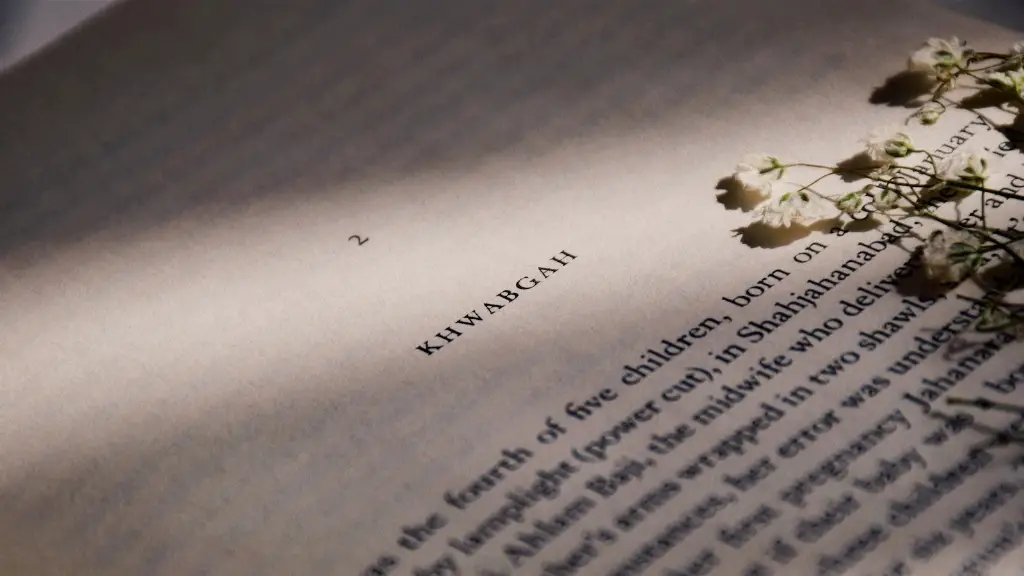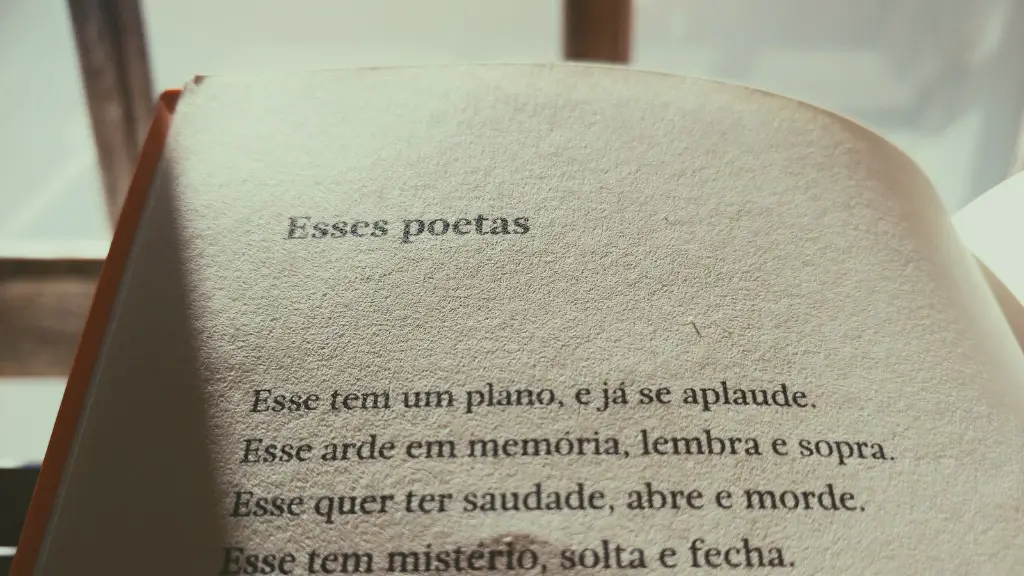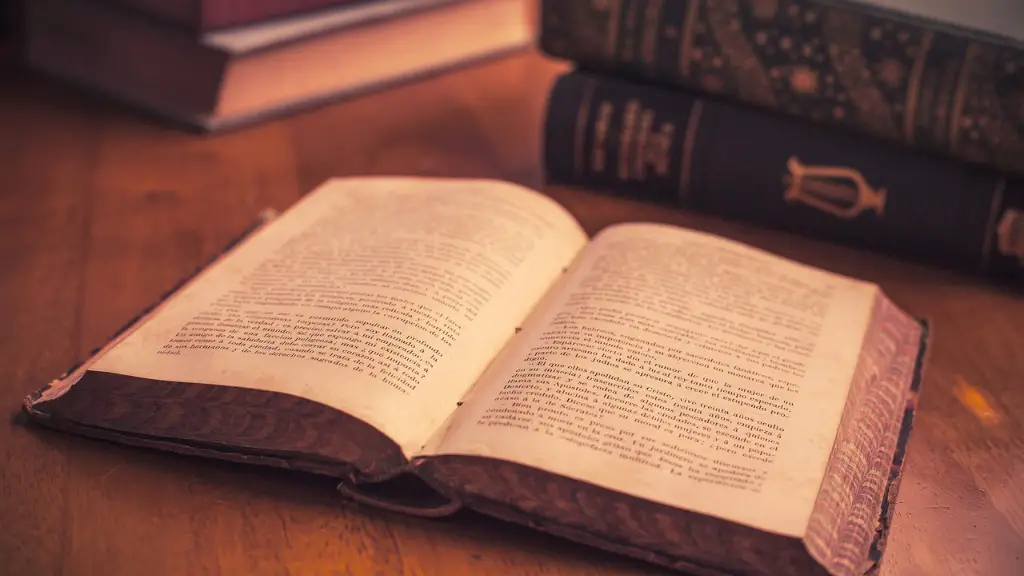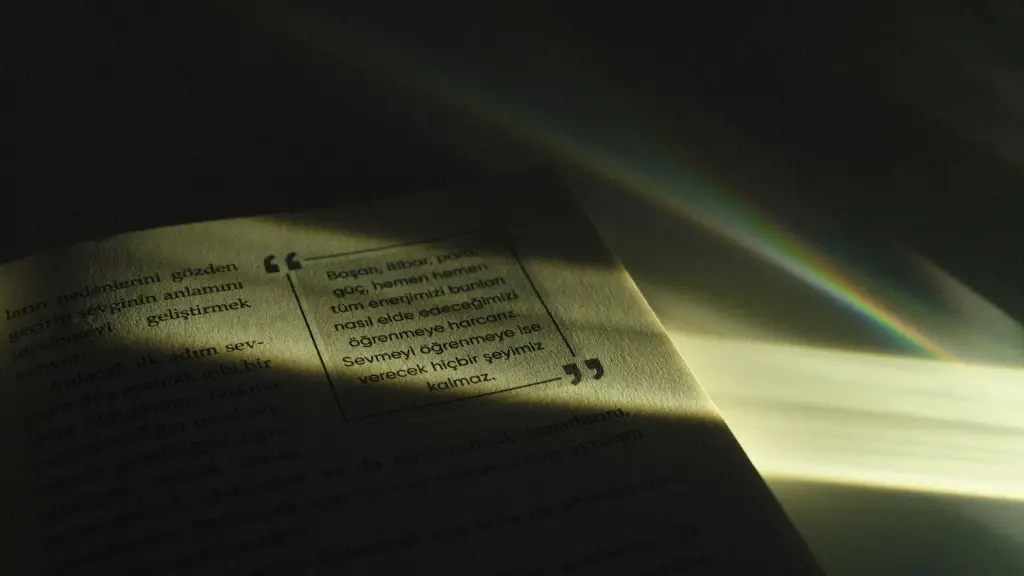It has often been speculated whether the American literature innovator, Walt Whitman, was bisexual due to the strong references to love and sexual partnerships in his written works. With scholars and literary experts discussing if his works should be classified as homosexual or bisexual for decades, the consensus is not a definitive answer. To explore further, it is necessary to analyze his quotes, biographical information and opinions from experts in the realm of literary studies.
The question of whether Walt Whitman was bisexual comes down to an examination of his writing, which has been seen as evidence of his own sexual interests. In his poem “A Woman Waits for Me”, Walt Whitman mentions two lovers; a man and a woman. This suggests the possibility that he did have bisexual tendencies, as there is a duality in the poem. However, it is important to note that the poem is set in a distant past, and could therefore be interpreted as a poetic idealization of relationships, rather than a reflection of Whitman’s own life.
From his action, biographers observed particular relationships, leading to theories that Walt Whitman was bisexual. These included his close relationship with Harry Stafford and their romantic letters, and his alleged relationship with Peter Doyle in 1868. While these memories provide insight into Whitman’s personal life, it is important to note that concrete evidence of any sexual relationship is scarce, making it impossible to definitively say if Whitman was bisexual.
Moreover, Whitman’s writings have been analyzed and studied by literary experts and psychologists. Many have argued that Whitman’s works suggest a ‘third sex’: neither male nor female, and beyond the boundaries of conventional sexual orientation. Additionally, some scholars have highlighted what they believe is a homosexual element in Walt Whitman’s poetry, pointing to the homoerotic sentiments in his work. On the contrary, others have indicated that Whitman’s references to sexual attraction were directed at both sexes and, therefore, he should be categorized as bisexual.
From a psychological perspective, there is no clear evidence that Walt Whitman was bisexual. His poems and biographical records may indicate a certain level of comfort he had with sexuality that did not conform to traditional notions, however, it is impossible to substantiate this with any surety. It is worth noting, however, that even though he may not have identified as bisexual, his artwork and writings were revolutionary at a time when there was a great deal of hesitation around the concept of sexual identity and gender roles. Whitman’s efforts to both defend and celebrate individualism have had lasting implications and his legacy has been praised by LGBTQ+ communities who regard him as a symbol of tolerance and acceptance.
It is also worth pointing out that, while Walt Whitman’s poetry tends to focus on topics of gender and sexuality, his work is not limited to this. He wrote extensively and discussed topics such as spirituality, human relationships, nature and politics, among many others. As such, while it is important to consider the evidence regarding Whitman’s sexuality, it is often seen by many as secondary to his manifold accomplishments.
The importance of Walt Whitman in American literature
Walt Whitman is widely considered as one of the most important writers and poets in American literature. His work, which he often referred to as ‘Leaves of Grass’, included a wide range of topics, including politics, religion and sexuality. His book was first published in 1855 and included revolutionary concepts such as egalitarianism and individualism; at the time, it was received as a radical challenge to traditional American literary norms.
Moreover, Whitman strongly believed that poetry should be accessible to everyone and strive to capture the spirit of the ages. In this way, his work had a large and unique influence on subsequent writers and poets. As such, he is often credited as the predecessor of modernist literature in the United States and has had an undeniable impact on American poetry. Additionally, Whitman’s work often highlighted issues of gender, sexuality and politics, paving the way for future generations of poets to explore such topics.
Furthermore, Whitman’s work also garnered attention from international audiences and there was particular interest from France. In fact, Whitman was praised by notable French figures such as Verlaine, whom described him as the ‘prince of the American bards’. The admiration he received was further emphasized by poet Jean-Marc Roberts, who wrote: “Always Whitman is…The poet who, in breaking the conventional mold, breaks through it and who, in the universality of his gaze, anticipates the outpourings of thought, both giving way to dreams and allowing them to invade societies, be they American or not.”
To conclude, Walt Whitman played a significant role in American literature and poetry, and is seen by many as the pioneer of a new wave of literature that embraced individualism and criticism of contemporary values. While scholars and literary experts have discussed for decades if his works should be classified as homosexual or bisexual, it is impossible to come to a definitive conclusion. Regardless, his written works have had lasting effects and are praised by generations to come.
The Symbolism of Leaves of Grass
Walt Whitman’s ‘Leaves of Grass’ is widely considered to be his magnum opus and is a collection of poems about his life and his vision for progressive America. The symbolism of ‘leaves of grass’ is reflective of Whitman’s sentiment that the American dream and its society are rooted in nature and its underlying power. In this way, Whitman’s poetry is often seen as a way of re-connecting American patriotism with the Earth, and his poetry is infused with love and pride of his homeland.
The title also has multiple layers of meaning. For Whitman, ‘leaves of grass’ is a metaphor for the individual; he often spoke of America as a collective identity, composed of separate and unique individuals. The title is thus a symbol of the nation’s potential for limitless growth, no matter how small and insignificant the individual may be. Additionally, for Whitman, ‘leaves of grass’ was a metaphor for poetry, a language of self-expression that is capable of bringing together people from his country and from all around the world.
Moreover, ‘Leaves of Grass’ also has religious connotations. Whitman often used the title as an analogy for the Bible and its individual verses; in this way, he highlights the importance and symbolism of the words he wrote. Additionally, ‘Leaves of Grass’ is also about humility and accepting one’s place in the greater scheme of the universe; Whitman wrote the poem with a greater understanding of the nation’s spiritual importance, and it is often considered to be a reflection of his beliefs.
Lastly, ‘Leaves of Grass’ is often highlighted as a reflection of Whitman’s ideals; the title has various interpretations and it can be seen as a tribute to Whitman’s optimism, passion and patriotism. Thus, when we think of ‘Leaves of Grass’ as an entity, we should consider it not only as a collection of poetry, but also as an embodiment of his beliefs, values and his vision for a progressive America.
The effects of Whitman’s writings on generations to come
Walt Whitman’s work often focused on themes of self-expression and independence, exploring a wide range of topics, including gender and sexuality. As such, Whitman’s work has had a lasting effect on generations to come. His work has inspired a sense of individualism and confidence in those who have read it, and it has pushed people to challenge existing practices, providing them with the freedom to express their own experiences.
Additionally, Whitman’s legacy has been praised by LGBTQ+ communities and he is seen as a symbol of tolerance and acceptance. His works have pushed the boundaries of conventional gender roles and provided an outlet for people to express their own sexuality. Moreover, Whitman’s works have been praised for their enthusiasm and optimism, particularly in regards to America’s place in the world. For example, his work “Liberty” conveys the theme of patriotic duty, and has been regarded as a bold statement of support for the nation.
Furthermore, many of Whitman’s themes are still relevant today. The endurance of his work speaks to its timelessness and universality, and he speaks to generations of Americans with a blend of charm, sympathy and optimism. From his work, we can gain insight and appreciation of what it means to be part of the American nation. While it remains difficult to definitively classify Whitman’s work, there is no denying his contribution and influence on literature in the United States and around the world.
The influence of Whitman on popular culture
The influence of Walt Whitman is not only limited to literature and poetry; he has had a lasting impact on popular culture in a variety of ways. In addition to having several poems adapted into popular songs and musicals, he has also appeared in a several films and television shows. For instance, he was portrayed by actor Benjamin Walker in the film ‘Lincoln’, and in the award- winning drama ‘The Tree of Life’ starring Brad Pitt.
Moreover, there have been a variety of books and academic papers written about Whitman’s life, works and legacy. For instance, scholars such as John Bascom, James B. Trego and Andrew Delbanco wrote extensively on the poet, in both positive and critical evaluations. Additionally, biographers such as Justin Kaplan and Matt Cohen have highlighted Whitman’s impact on America and its culture.
Furthermore, Whitman’s influence can also be seen in contemporary art. For instance, the poet has been featured in works by painter Andy Warhol, photographer Lee Friedlander and photographer-writer Robert Frank. His work is also celebrated in the Walt Whitman Bridge, in Philly, and various schools and organizations bear his name.
The lasting influence of Walt Whitman on popular culture speaks to the power of his written works and his place in American literature. He has had an undeniable impact on generations of Americans and his works continue to inspire and provoke thought.
The exploration of themes in Whitman’s works
Throughout his work, Whitman explored a range of topics and themes, including self-expression and individualism, the power of nature and sexuality. In the poem “Song of Myself”, Whitman celebrates the individual, celebrating their freedoms and individual pursuits. Furthermore, in “Crossing Brooklyn Ferry”, Whitman expresses the sense of interconnectedness between individuals and their environment. Additionally, Whitman often explored themes of gender and sexuality; in particular, his works are seen as a celebration of all forms of love, regardless of gender, and he wrote extensively about the freedom to express one’s passion and emotions.
Additionally, many of Whitman’s poems focused on his observations of the contemporary world and his thoughts on the American nation. He spoke of democracy and free will, justice and equality. In addition, the poet often wrote of his sadness at the oppression of others; in his poem “Out of the Cradle Endlessly Rocking”, he expressed his discontent at the exploitation and mistreatment of Native Americans. He believed that the United States should be a place for freedom and opportunity for all, and he advocated for the rights of all people living in the nation.
Moreover, Whitman often pointed out the divisions in society and the need for unity. In his poem “Beat! Beat! Drums!”, Whitman speaks of people from all walks of life coming together for a common cause. In this way, Whitman’s work is often seen as a call to unity and a celebration of diversity.
In conclusion, Walt Whitman wrote extensively and explored various themes in his work. From his writing, we can gain insight into his beliefs and values, and can appreciate his vision of a progressive America. Moreover, his works often focused on topics of gender and sexuality, paving the way for future generations of poets to explore such themes.





